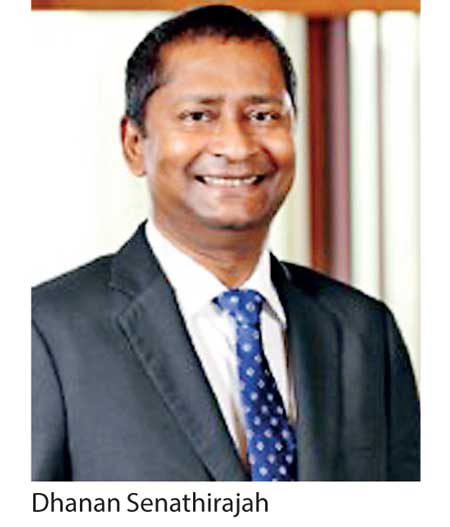Monday Feb 23, 2026
Monday Feb 23, 2026
Friday, 6 October 2017 00:00 - - {{hitsCtrl.values.hits}}
 “Empowering communities out of poverty – for real. For good. That has been our business for 40 years here in Sri Lanka,” says Dhanan Senathirajah, National Director for World Vision in Sri Lanka.
“Empowering communities out of poverty – for real. For good. That has been our business for 40 years here in Sri Lanka,” says Dhanan Senathirajah, National Director for World Vision in Sri Lanka.
“However, as a child-centred agency, children are always at the heart of our work because they are the best indicator of a community’s social health. When children are fed, sheltered, schooled, protected, valued, and loved, a community thrives. So, everything we do has just one goal: the sustained well-being of children, especially the most vulnerable.”
Senathirajah, who brings a fresh infusion of ideas, hailing from the corporate world, believes that economic development for communities is key to progress – “Once economic empowerment happens, other areas work out. To make the development sustainable, we need to help parents have a stable income. Then they are able to support the well-being of their children without compromise,” he says.
Since 1977, World Vision has been actively involved in community development with interventions in health and nutrition, water and sanitation, education and economic development with child wellbeing as an underlying feature.
Key to a successful development program lies in its sustainability, he adds. “Our programs are long term (15-20 years), participatory and community-based. The community is involved from beginning to end in the whole process of identifying issues that hinder their development and working towards sustainable solutions. The people are the stakeholders and the beneficiaries, which adds value to their contribution towards the project’s success. During this time the community is equipped to envision, plan, implement, monitor and evaluate the projects in an interdependent relationship with local governments and other stakeholders. Once they are stable enough to continue the development work, we will move out and the community will take over. We have 12 such programs that are now run by the community. This year we have handed over four.”
“For the people, it is a symbolic as well as an emotional moment when the project is given over to the community. Because the project has left a lasting impact on their lives and has benefitted them, they feel a close bond with it and are motivated to take it forward,” he says. “For us, it is the most rewarding moment to see a community empowered – women participating in decision making, children with special needs are accepted and have accessibility and youth are ready to take leadership.”
With projects in 22 out of the 25 districts, World Vision has also been instrumental in providing humanitarian assistance in emergencies such as the tsunami, floods and drought as well as in the post-war context.
“As first responders to crisis situations, we have global expertise and readiness in meeting the immediate needs under such circumstances. We are often the first to enter and the last to leave. We not only focus on the immediate needs but we also look at long-term recovery and disaster risk reduction by making communities disaster-ready,” says Senathirajah.
He believes that as a global organisation with best practices and established work norms, coupled with a local outreach and grass root presence, World Vision has the kind of accountability and potential, which draws corporates to partner for community development work.
“Today, we see a tremendous transformation in the way CSR is viewed in the corporate world which speaks well for community development as an opportunity to transform lives.”
World Vision Lanka’s work in the sphere of child protection is significant. Among some of World Vision’s projects are shelters for street children.
“The children are referred to the Project through the Child Care and Probation Services. While providing them a place of safety and care, the projects also focus on their psycho-social needs. The Project’s main aim is to reintegrate the children with their families and focuses on the rehabilitation of parents as well,” he says.
“World Vision will continue to journey with communities until we see every family out of poverty and vulnerability. I want to thank everyone who has partnered and will partner with us in transforming their lives. We greatly appreciate your trust in us,” he said in conclusion.